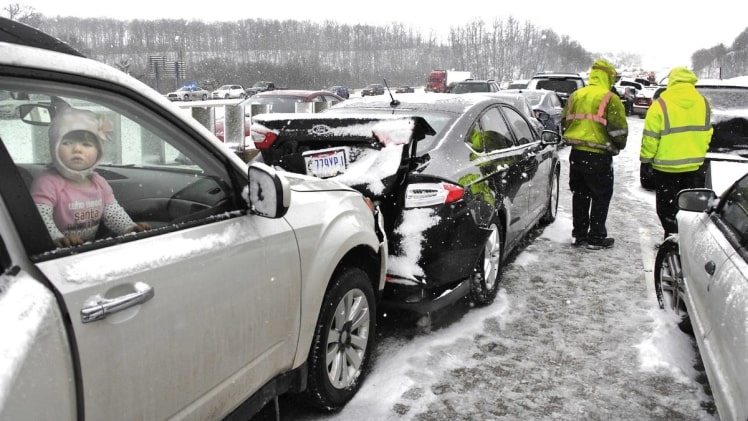Winters are infamous for causing car accidents. Poor visibility caused by fog, slippery roads, cold temperatures, etc., causes over 100,000 injuries every year and about 1,300 deaths. You should avoid going out in winters as much as you can, and if you must go, you should be extra-precautious.
Car accidents increase during the winters because many people do not understand the hazards. To avoid accidents, you must know the exact reasons behind them so that you can take preventative steps. If a negligent driver hit your car, a Manchester car accident lawyer could help you seek compensation.
Causes of snow-related car accidents
1. Driving too fast.
Speeding is dangerous in any weather, but it is particularly more deadly during winters. The slick roadways and poor visibility increase the chances of a hazard, and thus, you need to drive more slowly and cautiously. If conditions are severe, you may need to go slower than the speed limit.
2. Blocked windows.
Snow, ice, and sleet in your windows can result in poor visibility in extreme weather conditions. Not being able to see your surroundings through the window can result in dangerous collisions. Make sure to use the defroster of your case to keep your windows clean.
3. Following too closely.
It is common sense that driving on slippery roads requires more time and distance to stop. Therefore, you should go at a safe speed and leave enough space between your car and the one in front of you. A good thumb rule to follow in determining the 2-second rule. When the vehicle in front passes a stationary object, make sure your car passes it after 2 seconds. This ensures that there is sufficient space.
4. Rushing to reach your destination.
Make sure you do not leave in a rush during winters and allow yourself more time to reach the destination. Being late and in a hurry causes one to drive fast, which results in accidents.
5. Stopping on a lane.
If your vehicle broke down or is troubling you, make sure to move it to a safer side of the road. Stopping your car on a busy roadway can result in an accident. Due to reduced visibility, the oncoming traffic may not see your vehicle and cause a collision.
6. Traveling unnecessarily.
You cannot delay essential things, like going to work or college. However, you must try to delay unnecessary activities, such as going shopping, a meeting that can be rescheduled, or going on a trip. It is advised to stay home if conditions are adverse.
Snow-related accidents are not uncommon, and if you have been in one, you need to get a lawyer to fight for your rights.

